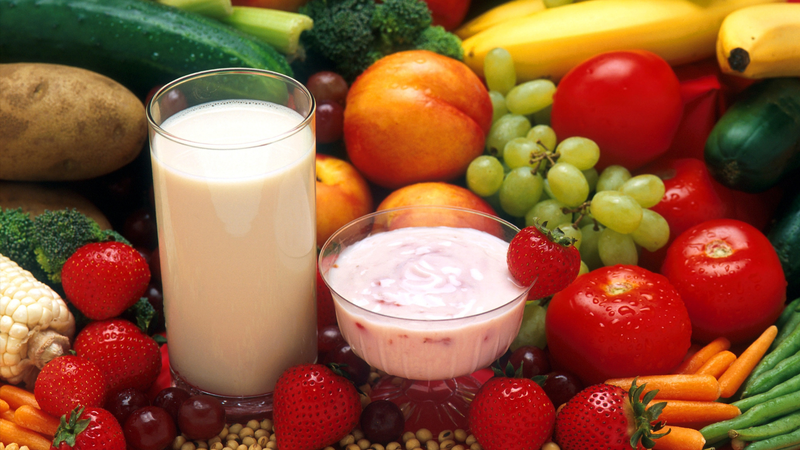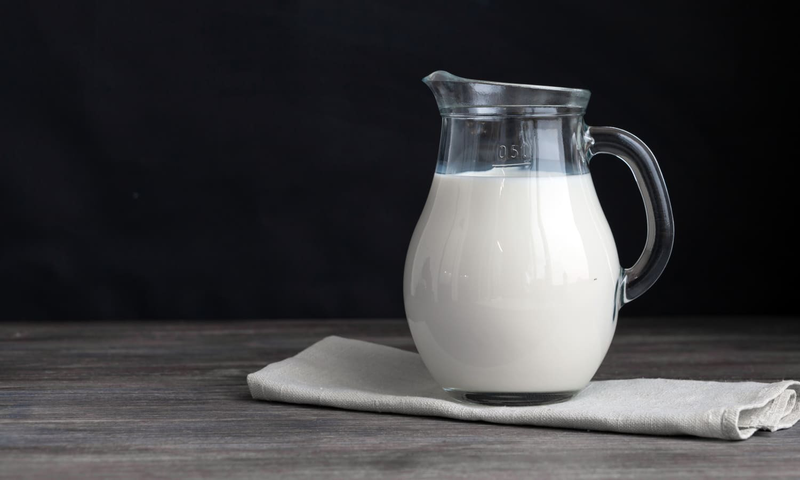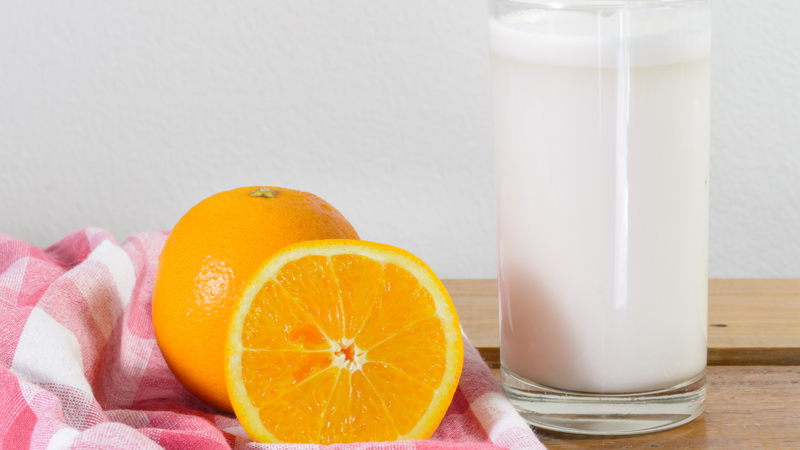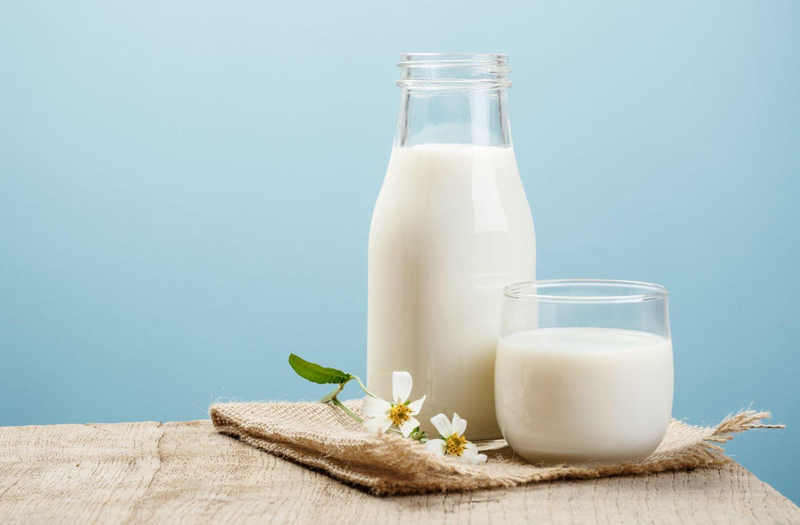Milk is an important source of nutrition, good for health if used properly. However, should you drink milk after eating fruit? Let’s find out through the article below!
Milk may not be suitable when combined with some other foods, including fruit. Not only does it reduce the nutritional value of milk, it can also cause side effects, negatively affecting health. Therefore, you need to be fully equipped with knowledge on this issue.
Should you drink milk after eating fruit?
A simple experiment has demonstrated the effects of combining fruit and milk: When squeezing orange or lemon juice into a glass of milk, precipitation will occur. This occurs due to the reaction between the acid in sour fruit and the casein protein in milk, causing the milk to precipitate and become lumpy.
So should you drink milk after eating fruit? When eating sour fruit immediately after drinking milk, the above reaction can occur in the stomach, causing indigestion, bloating, and even stomach pain. To avoid this situation, there should be at least a 30-minute gap between drinking milk and eating fruit. In addition, nutritionists also recommend drinking milk first because the stomach digests milk faster than fruit.
In fact, we often mix smoothies from fruit and milk. However, not all fruits are suitable for combining with milk.
Some fruits such as bananas, strawberries, and oranges generate heat when digested, while milk has a cooling effect. When these two properties meet during digestion, they can disrupt the digestive system, leading to:
- Imbalance of intestinal bacteria.
- Formation of toxins in the stomach.
- Symptoms such as colds, coughs, phlegm, and allergies.
This explains why nutritionists do not recommend combining milk and fruit, especially acidic ones.

Should you drink milk after eating fruit is a question of many readers.
Other foods that should not be combined with milk
After learning whether to drink milk after eating fruit, you should also understand the foods that should not be combined with milk. In addition to fruit, there are many other foods that should not be used with milk because they can have the opposite effect:
- Meat: Milk and meat are both nutritious foods, but when combined, they put a lot of pressure on the digestive system. Milk is not digested in the duodenum like other foods, leading to the stomach not secreting enough digestive juices. This causes bloating, indigestion and hinders the absorption of nutrients.
- Fish: The combination of milk and fish is said to have the ability to create toxins. These substances can seriously affect the skin, increase the risk of skin diseases, and cause blockages in the body, affecting circulation and the cardiovascular system. Therefore, you should not eat fish and drink milk in the same meal.
- Salt: Salt and milk have opposite properties and should not be combined. When milk is an ingredient in salty foods, it can have negative effects on the body over time, although these effects may not be immediately apparent.

Salt and milk have opposite properties and should not be combined
- Citrus fruits: Citrus fruits such as oranges, lemons or foods high in acid should not be combined with milk. The acid in these foods reacts with the protein in milk, causing precipitation, leading to bloating, indigestion or heartburn.
- Melons: According to nutritionists, milk has a laxative effect, while melons have diuretic properties. When used together, these two foods create a conflict in digestive function. The stomach acid needed to digest melons can cause the milk to curdle, leading to stomach problems such as bloating or indigestion.
- Chocolate: Milk is rich in protein, while chocolate contains oxalic acid. When combined, they create calcium oxalate – a compound that interferes with calcium absorption. The consequences can be diarrhea, constipation, and in young children, can even cause stunted growth.
- Bananas: Bananas are rich in vitamin B6 and fiber, but eating them with milk, especially on an empty stomach, can cause diarrhea, indigestion, and sometimes a cold or stuffy nose. To avoid these effects, eat bananas and drink milk at least 30 minutes apart.
- Oranges: Oranges contain a lot of vitamin C and tartaric acid. When combined with the protein in milk, chemical reactions will occur, causing diarrhea, vomiting, and completely destroying the nutrients in milk. Therefore, you should not eat oranges within an hour of drinking milk.

Do not eat oranges within an hour of drinking milk
- Porridge: Although it seems that adding milk to porridge will increase nutrition, in fact it does not. Porridge is rich in starch, which contains the enzyme lipoxygenase, which destroys vitamin A in milk. This significantly reduces the nutritional benefits of both foods.
- Sugar: Adding sugar to milk, especially hot milk, can be dangerous. Sugar reacts with lysine in milk to create fructose lysine – a compound that can be harmful to the body, especially the digestive system.
- Tea: Tea and milk reduce the antioxidant effects of tea, reducing health benefits.
Should you drink milk when you have diarrhea?
When you have diarrhea or digestive problems, you should limit your milk intake. The main reason is that milk contains lactose, and the digestion of lactose depends on the lactase enzyme secreted by the small intestine. When the intestines are damaged, the ability to produce lactase is reduced, causing lactose to not be broken down, causing intestinal irritation, bloating, diarrhea and dehydration.
Therefore, during diarrhea, you should avoid milk and choose other easily digestible foods to help your body recover.

When you have diarrhea, you should limit drinking milk.
Hopefully the above article has helped you answer the question of whether you should drink milk after eating fruit. To protect your health and maximize the nutritional benefits of milk and fruit, you should consume them scientifically, at reasonable intervals. Just pay a little attention to the way you eat, and you can build a safe and healthy diet.





